February 23, 2022, was a relatively ordinary day on our planet. Until 10:30 p.m. Ontario time—early morning of February 24 where Nataliia Kurhan lives—when I heard a reporter announce breathlessly, “Missiles are being fired; the invasion has begun.”
I saw streaks descending behind the reporter on the screen and heard the sound of rockets.
In the year-and-a-half since that day, the Ukraine war has ended and up-ended countless lives in ways most of us in North America cannot imagine. It has also weaved its way into many of our own lives in ways we could not have expected.
Why does Ukraine matter so much to me? Is it “The Blessing,” my orchestra piece that was performed by the Ukrainian Philharmonic Orchestra at the Opera Theatre in Kyiv six years ago?
Is it my family, friends and colleagues who have Ukrainian chapters in their lives? My husband, Lyle Friesen, comes from the people who left Molotschna (now Zaporizhzhia), Ukraine, for Canada in 1874.
Is it the constant news of missiles and ruined cities, people living underground, hospitals razed?
When I hear of Ukrainians being captured from their homes at midnight, children taken from their families and a girl gang-raped, my indignation turns into outrage.
A month after the invasion, I could no longer stay silent; music began to cry out as my own personal response to this atrocity. “Singing to the Children of Ukraine” was born.
Yet I needed to meet a Ukrainian who knew from the gut what the war meant.
A local paper published an article about Nataliia Kurhan, a brave Ukrainian teacher, translator and administrator. I contacted her, and we quickly became close friends. Nataliia escaped Ukraine with her two daughters and cat by driving for eight days, only at dark. By March 2022, she arrived in Kitchener, Ontario.
I dedicated my song to her. I also asked her if the song should only express pain or also hope and restoration. She insisted the song needs hope. Three sections developed: a wordless outcry; a song of grief for those who have passed away; and a song of hope for recovery and return home.
The work was premiered at Hawkesville Mennonite Church, in Hawkesville, Ontario, on May 3, 2022, with multiple subsequent choral and solo-vocal performances at various churches and events in Ontario and Goshen, Indiana.
Captured
On May 13, 2022, I received an alarming text from Nataliia: “Just got the terrible news from my mother that Russians just captured Ihor, my relative, and they demand $100,000 to free him.”
Ihor had been captured weeks earlier, possibly tortured, and would only be released with a ransom payment far beyond their means. No longer was the war distant or hypothetical.
I reached out to Mennonite Central Committee, but they could not help this man. The Ukrainian government could not help either, since he was in Russian-held territory.
Nataliia knew she had to help bring Ihor’s 16-year-old son Nikita to Canada. She busily wrote messages to Ukrainian government offices, but, as she noted, “there are thousands of such requests for help in Ukraine.”
The ensuing days were laced with tensions. Was Ihor fed? Did he have warm clothing? Was he alive?
On May 17, 2022, three weeks after Ihor’s initial capture, Nataliia reported that he had been miraculously released. She saw him on video call. “He looks five years older and lost weight . . . but still, he is alive!” she wrote.
Ihor had been kept in a dark garage for three weeks and tortured. He had been captured for having a Ukrainian flag and Ukrainian symbols on his phone.
The good news of his release was tempered by the fact that the Russians confiscated his passport and belongings, so he lives in a kind of house arrest, not able to travel beyond his immediate region.
In the following weeks, Ihor and his wife were able, through tremendous effort and with much help from Nataliia, to get their son Nikita to Canada.
A son’s story
I interviewed Nikita, with Nataliia translating. “The Russians came in the middle of the night and took my father,” he told me. “We didn’t know what to do. We had a lot of fear. We had to hide for three weeks. I hid in a closet, others, in different rooms. They threatened our family a lot.”
He shared too how the family learned that Ihor had been fed once every three days. His captors sent electrical shocks into clamps on his fingers until he fainted. “Some people couldn’t bear this and died,” Nikita said of others who were held captive with his dad. “People living nearby have heard constant screams from this place, ever since the Russians occupied the town.”
Nikita told of his father’s release. “They put a sack over his head. He thought he would be shot. Instead, they brought him home, but forced him to give them money, otherwise our whole family would be shot. I’ve never seen my father so scared.”
Now, Ihor is allowed to travel only in certain areas, so he can continue his business and give the Russians the money they demand in exchange for his freedom and that of his family.
“He’s under their total control,” Nikita says. “Even his phone is bugged; yet when he calls, he speaks to me in Ukrainian, which is risky.”
Song of spirit and tumult
Hearing from this young man, it was time to write music for Ihor. I thought of what sustains people imprisoned like Ihor, though some for much longer. Freedom of spirit seems to be one essential key.
At that time, I was also commissioned by Canadian pianist Amelia Grace Yates to compose a piano solo. I called it “Spirit Unbound,” for Ihor. The piece was premiered by Yates on March 26, 2023, in Burlington, Ontario.
As a preface to her performance, she said that in the piece listeners would hear the “tumult” of the invasion, “balanced with music of hope” as well as fragments of the Ukrainian national anthem.
Subsequently I created a composite soundscape, called “Ukraine Grief,” in coordination with Nataliia. It incorporates her voice as she talks about the grief and pain of the war, along with the sounds of air raid sirens recorded by friends in Dnipro, and parts of “Singing to the Children of Ukraine” and “Spirit Unbound.”
Nataliia says, “grief has many sounds, including hopelessness, despair and loss of meaning of life.” Within this soundscape her single voice represents the gravitas and poignancy of millions who have also suffered inordinate loss due to this invasion. As she calmly talks about grief, she reveals the strength, steadiness, focus and courage required to survive this war.
It has been an honour to learn to know Nataliia and other Ukrainians whose lives have connected with mine. My life has been changed by knowing about this war through their eyes, ears and hearts. The spirit of Nataliia and my other Ukrainian friends has guided my music, bringing me to a more intimate place of identity with those in the epicentre of this unfathomable tragedy. What hurts one hurts us all. Sometimes music can understand this better than we can. Is that not why we sing? As Canadian songwriter Leon Dubinsky says, “We rise again in the voices of our song.”
Carol Ann Weaver is a composer, pianist and professor emerita of music at Conrad Grebel University College.


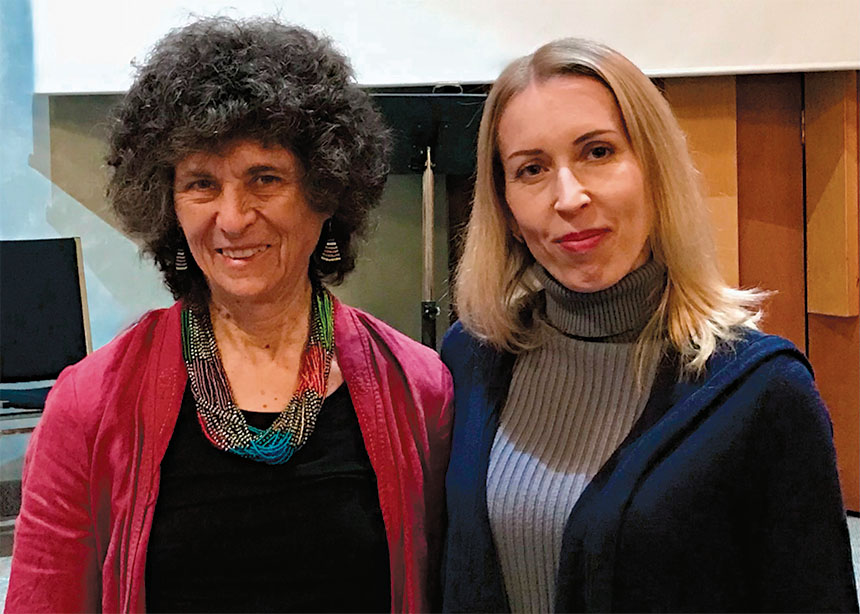


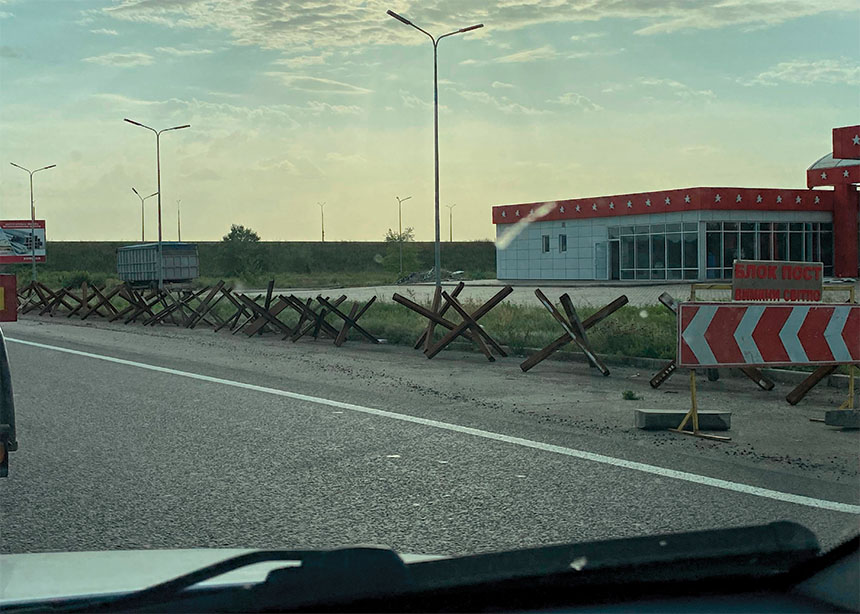
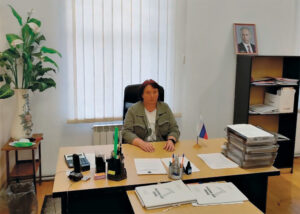
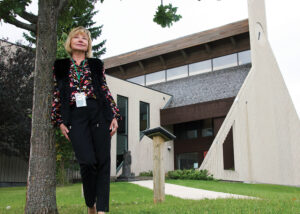
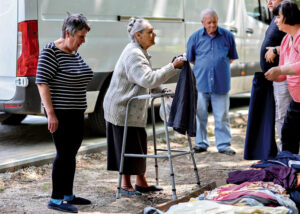

Leave a Reply
You must be logged in to post a comment.